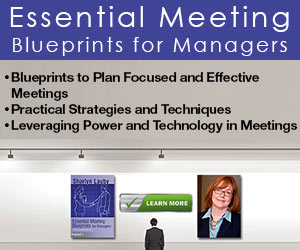A few days ago I mentioned a post by Krista Francis on the subject of health care reform. There was a part of the post that really struck me but I didn’t want to mention it at the time because health care reform is an important topic and deserved our focus.
What bugged me was the part about silence.
I agree with Krista – there was very little written about health care reform with the exception of “we need it” or the status of the legislation. I wonder why that is. Is it because the community doesn’t have an opinion? Or is it because people don’t want to share their opinions for fear they’re going to piss somebody off? Or have we just been waiting for the legislation to pass so we can complain about it?
Or, are we afraid of being controversial? Because we might be challenged to get involved.
Now I’m not talking about controversy in terms of whether companies should adopt social media. Frankly that’s pretty low hanging fruit. On the controversy scale, it might rank a 1. Where IMHO, the debate on health care is a 10 (maybe even an 11) on the controversy meter.
In our corporate lives, we tell our employees, “don’t bring us problems; bring solutions.” And, Krista’s post reminded me that we have to practice what we preach.
 People have all sorts of opinions. About topics (like health care) or changes organizations should make to be successful. That’s great. Those ideas need to be heard. It’s not fair to tell an organization – here’s my idea, go fix your problems and then I’ll support you. Or even worse, not tell them at all.
People have all sorts of opinions. About topics (like health care) or changes organizations should make to be successful. That’s great. Those ideas need to be heard. It’s not fair to tell an organization – here’s my idea, go fix your problems and then I’ll support you. Or even worse, not tell them at all.
Years ago, I sat on a committee within the company where I worked. In that company, there was one person who would constantly complain about the things this committee did. How did I handle it? I asked her to be on the committee! And lucky for me, she accepted. I learned from her and (hopefully) she from me.
Got something you want to change? The best way to impact change is by being an active part of the organization or process needing change. That might mean doing any of the following:
- Volunteering your expertise
- Giving a business a second chance to impress you
- Renewing a membership and participating at a higher level
Also keep in mind, if you’re not willing to roll up your sleeves and help make change happen, it’s possible the change that get’s implemented is the one from the folks who did get involved. Not the change asked for by the people on the sidelines.
Show an organization you want to change that you’re willing to support them while they make those much needed changes. Implementing change isn’t easy and it also isn’t quick. If every person took the path of sitting on the sidelines until things were 100% perfect, positive change would never happen.
This isn’t about health care reform, it’s about creating positive lasting change.
Image courtesy of DerrickT







Chris Ferdinandi - Renegade HR says
I’ve said it before, I”ll say it again: I shouldn’t have to change SHRM into the kind of organization I’d like join – especially not when I have to PAY to join!
I’d much rather do what Ben Eubanks has done and create events and circles of influence that align with my beliefs and ideals from the start. Change from within in one way to do things. Starting from scratch is another (and it’s often more effective).
Michael VanDervort says
And in the end, it takes both kinds of change (internal and external) to make a movement that is sticky. History is full of such examples. We saw some of that in the health care reform debate.
hr bartender says
@Chris – Thanks for the comment. I’m not sure we’re talking about the same thing. Just as you’ve explained, people have to make the decision whether something is valuable (or not) and then focus their support in that direction. My point is, it wouldn’t be fair to tell an organization to make changes if you’re not willing to help make them happen.
@Mike – I believe by far, most change comes from inside an organization. The only significant external driver I can think of is money (or pressures directly tied to money). I’m sure we’ve both seen plenty of cases where, even when the external factors were pretty compelling, the internal organization didn’t want to change. So they didn’t until it was too late (205 failed banks for instance.) Thanks for adding to the conversation.
Chris Ferdinandi - Renegade HR says
Sharlyn, why is that not fair? SHRM has a vested monetary and political interest in getting people to join. If they want to gain new members (and keep existing ones) they have a responsibility to make those changes. I can’t think of any legitimate business that would survive by telling dissatisfied customers to become employees and change from within. They’d go out of business.
hr bartender says
Chris, businesses operate on supply and demand. If there is tremendous demand and a lot of supply, then businesses consider change from external sources in order to remain competitive. But, as Mike and I were discussing, that’s usually because with the change comes significant monetary return from higher market share.
On the other hand, if there is high demand but limited supply, there’s little incentive for change because the likelihood of your scenario (going out of business) is minimal. In those instances, change predominantly comes from within.
Chris Ferdinandi - Renegade HR says
And you just perfectly described my gripe with SHRM. They’re more or less the only show in town, so there’s no real driver for them to change or improve. They can continue doing what they’re doing knowing that they’re pretty much the only “supply” for the “demand” that’s out there.
So if I want to improve the quality of the supply, I have two options:
1. Give SHRM my hard earned money for the privilege of joining, just to have the opportunity to transform them into the kind of org I’d want to join in the first place (which, given their size and layers of bureaucracy is something I can’t imagine is easy to do), or…
2. I can start my own organization, host my own events, and build my own spheres of change outside of SHRM. I can start with a clean slate and create anything I want, without having to battle years of dogma and culture.
Why would I choose the first option when social media makes the second so easy?
Chris Ferdinandi - Renegade HR says
Also, it’s worth noting that the hubris of believing that being the only game in town insulates you from extinction has been the demise of many once great organizations.
The history books of business are filled with tales of organizations that went down hard because they continued to do the same old thing they’d always done, while some too-small-to-be-a-threat company did things radically differently and took down the Goliath.
hr bartender says
Chris, I think you’re leading us around in circles. Again, remember my post is about people who demand change and refuse to get involved. If someone decides to abandon an organization and go in another direction, well…my post doesn’t really apply.
Your comments appear to be about why you’ve given up on SHRM and that’s not really what I’m writing about. If you still want them to make changes to suit you even though you’ve chosen not to get involved, that might be unrealistic. If you don’t have that expectation, then I guess that’s pretty much it – time to move on.
Jay D'Aprile says
Sharlyn,
“I wonder why that is. Is it because the community doesn’t have an opinion? Or is it because people don’t want to share their opinions for fear they’re going to piss somebody off?” I believe that it is the entire above not to mention fear. People are uncomfortable sharing their opinion because they don’t want to be perceived as wrong, dumb, or get into trouble.
I wrote two posts on healthcare reform on my blog;
http://www.talenttracks.com/2010/02/we-have-met-the-enemy-and-he-is-us/
http://www.talenttracks.com/2010/03/am-i-going-to-lose-my-job-how-healthcare-reform-will-impact-your-career/